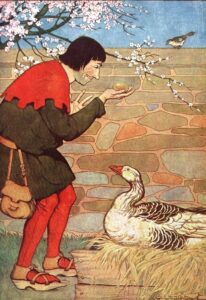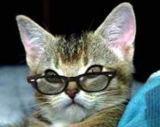 ISE has existed since the dawn of human civilization.
ISE has existed since the dawn of human civilization.
It’s the knowledge taught and learnt with imagination instead of just factual information and data.
In Western culture examples of ISE in literary form alone are found in stories of Aesop, Homer, Greek myths, Dante, Shakespeare Johnathan Swift, Voltaire, Hans Christian Andersen and George Orwell to name a few. While other world’s cultures have their own.
In short, it’s the learning of complex subjects, ideas and concepts with imagination.
For instance: the story of the Goose that Laid the Golden Egg by Aesop in a simple imaginative way tells the adverse effects of human greed.
In the story a farmer one day finds that his goose had laid a golden egg. From then on, each day he finds another golden one in the nest. Instead of being content with a daily golden egg, that is enough to make him rich, thinking that the goose has a lump of gold inside, he kills her to get all the gold, only to find out that there is nothing inside her.
In a simple figurative way Aesop warns of the result of greed when enough is never enough.
This is most important nowadays in an era where people are incessantly nagged by wants. Even more so for humanity that like the farmer of the story greedily exploits the earth of all its resources to satisfy unlimited wants thus degrading the planet and threatening its own survival.
ISE works similarly by instilling in people’s minds the wisdom, knowledge and insight that have been learnt with such method during the course of civilization.
It does so with its own delightful creations, directing them particularly to the young to which the future belongs.
Summary: ISE is a complementary education that aids the traditional one learnt in schools.
The bird of happiness goes to the hand that doesn’t try to grasp it.
.
